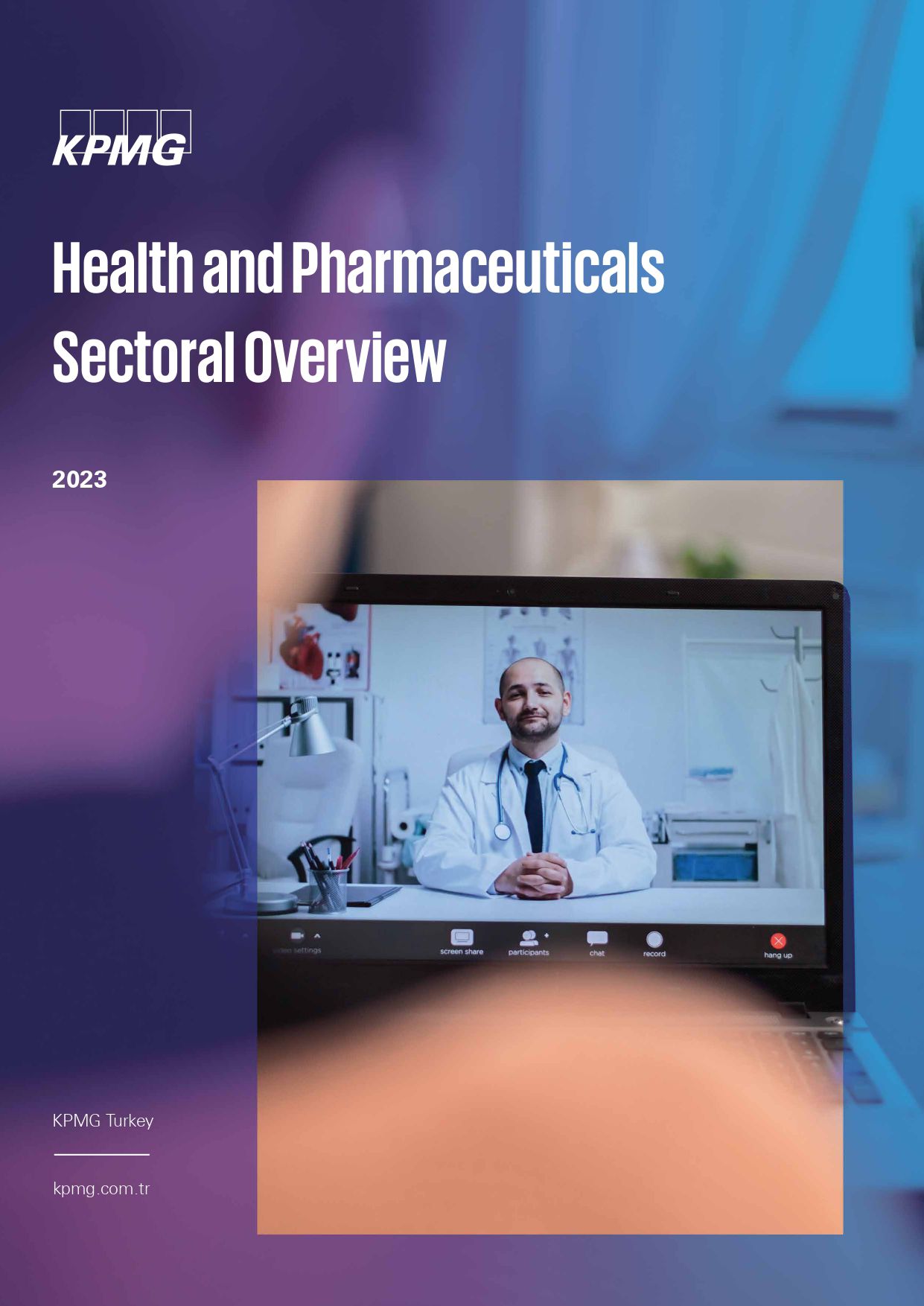The 2023 report "Health and Pharmaceutical Sectoral Overview" published by KPMG Türkiye focuses on topics such as emerging trends in the healthcare and pharmaceutical sector, digitalization in the sector, the potential impact of international tax developments on the healthcare and pharmaceutical sector, sustainability in the healthcare and pharmaceutical sector, environmental factors, and governance.
According to the data in the report, the healthcare and pharmaceutical sector continues to grow globally with the development of digital technologies. Global healthcare spending is expected to reach $11.3 trillion in 2025 and the pharmaceutical market is expected to reach $1.5 trillion. In addition to the growth of the market, the digital health and pharmaceutical era also has the potential to revolutionize healthcare services. Digitalization in the sector; wearable technologies and big data, offers benefits such as faster and more accurate diagnoses, personalized treatments, and improved patient quality of life.


Health and Pharmaceutical Sectoral Overview
In recent years, the healthcare and pharmaceutical sector has undergone a significant transformation driven by technological advances, data proliferation, the rise of remote care, changing consumer behaviors, the COVID-19 pandemic, and the entry of new players.
As part of this transformation, innovative business models are emerging that can add value to both patients and healthcare systems.
To remain competitive and meet the needs of patients, pharmaceutical companies are exploring new ways of working, such as developing innovative partnerships, investing in digital technologies, and focusing on a patient-centric approach. Another innovation in the healthcare and pharmaceutical sector is the use of digital technologies to improve patient outcomes. In this report, we aimed to shed light on the future of the healthcare and pharmaceutical sector by providing a deep dive into all of these topics.

Rising trends in the healthcare industry
- Decentralized health data is being adopted: This is the first example of the transformation of business models in the healthcare industry. A new business model is emerging in which centralized health data is being abandoned and decentralized health data is being adopted. The explosion of health data produced by individuals and healthcare organizations is creating opportunities for decentralized health data models.
- Remote care is developing with digital monitoring: Another trend is remote care, which is transforming the way healthcare is delivered. Virtual care units, wearable and implantable monitors, and virtual assistants are emerging as the key technologies that make remote care possible. In addition, web-based or mobile applications are widely used for remote monitoring.
- Telehealth applications are becoming widespread: Telehealth and medical consultation, one of the new business models in the healthcare sector that leverages technology to improve patient care and outcomes, enable the delivery of care remotely. Individuals have the opportunity to access healthcare in the comfort of their own homes and receive healthcare without having to go to the doctor's office or hospital in person.
- The use of artificial intelligence and machine learning is increasing: In addition to telehealth and digital monitoring technologies, the use of artificial intelligence and machine learning is becoming increasingly widespread in the healthcare sector, especially in the areas of drug discovery, personalized medicine, and operational efficiency.
The rising trends in the pharmaceutical industry
- Collaborations and partnerships are on the rise: In the coming years, collaboration and partnerships are expected to gain increasing importance in the pharmaceutical industry.
- E-commerce is gaining momentum in the pharmaceutical sector: E-commerce eliminates the need for face-to-face visits to the pharmacy by providing convenient and accessible access to prescription medications that can be delivered directly to the patients' doors. Additionally, e-commerce has the potential to create a more competitive market and lower drug prices. E-commerce platforms can utilize digital tools and analytics to provide personalized recommendations and support to patients, thereby improving medication adherence and overall health outcomes.
- Digital therapies are impacting the pharmaceutical sector: Recent medical advancements, coupled with digital therapies empowered by wearable devices, technology platforms, data collection, and AI-supported real-time analytics, are rapidly changing how pharmaceutical companies and healthcare providers deliver and customize healthcare services and address significant gaps. The widespread adoption of digital therapies and the expansion of the market size are expected by 2027.
Digitalization is gaining momentum
In KPMG Türkiye's report, it is mentioned that digitalization in the health and pharmaceutical sector is gaining momentum with the influence of technologies such as wearable technologies and big data. The report lists some of the most prominent digital health opportunities globally as follows:
- Telemedicine: Telemedicine eliminates spatial constraints for patients and healthcare professionals by providing remote health services. The global telemedicine market, valued at $45.5 billion in 2019, is expected to reach $175.5 billion by 2026.
- Biosensors and Medical Wearables: Biosensors and medical wearable devices allow continuous health monitoring, enabling patients and doctors to access real-time medical data. The market size of wearable devices used for health and fitness tracking was $29.6 billion in 2019 and is expected to reach $84.4 billion by the end of 2023.
- Data Analytics and Artificial Intelligence: The healthcare sector is experiencing an exponential data explosion every second. Every piece of recorded data contributes to the creation of big data. Approximately 30% of the world's data volume is generated by the healthcare sector today, and it is expected to increase to around 36% by 2025.
- Augmented Reality, Virtual Reality, and Metaverse: The market size of virtual reality and augmented reality technologies in the healthcare sector was $2.07 billion in 2019 and is expected to reach $30.7 billion by 2026.
Get in touch
Connect with us
- Find office locations kpmg.findOfficeLocations
- kpmg.emailUs
- Social media @ KPMG kpmg.socialMedia



